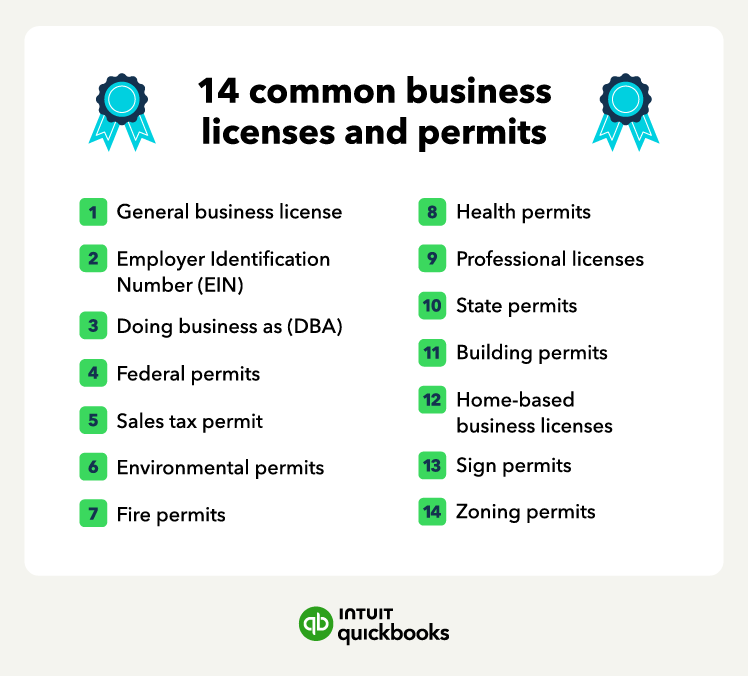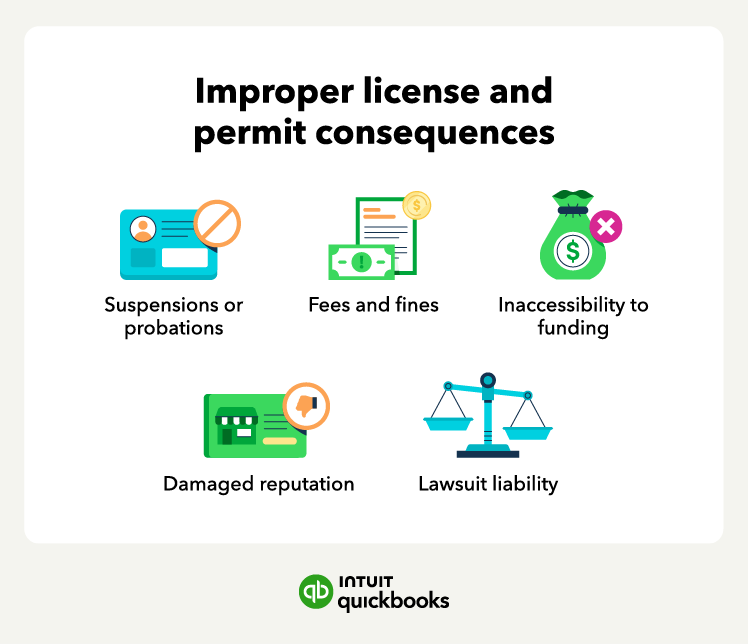When it comes to starting and registering your business, getting the right small business permits isn’t the most thrilling part of your entrepreneurial dream, but licenses and permits are crucial.
Figuring out business licenses and other regulations isn’t fun, but that doesn’t change the fact that it’s crucial for ensuring your company is compliant. There are 14 key types of business licenses and permits you might need to consider:
- General business license
- Employer Identification Number (EIN)
- Doing business as (DBA) license
- Federal permits
- Sales tax permits
- Environmental permits
- Fire permits
- Health permits
- Professional licenses
- State permits and licenses
- Building permits
- Home-based business licenses
- Sign permits
- Zoning permits
Many permits are going to depend on your city, county, or state, as well as the type of business you’re operating. There are typically three types of permits:
- Local: Your specific city, county, or municipality.
- State: The state where you’re doing business.
- Federal: Your industry is regulated on a federal level.
This is important to note because it means that you won’t necessarily get all the permits you need in one place.














